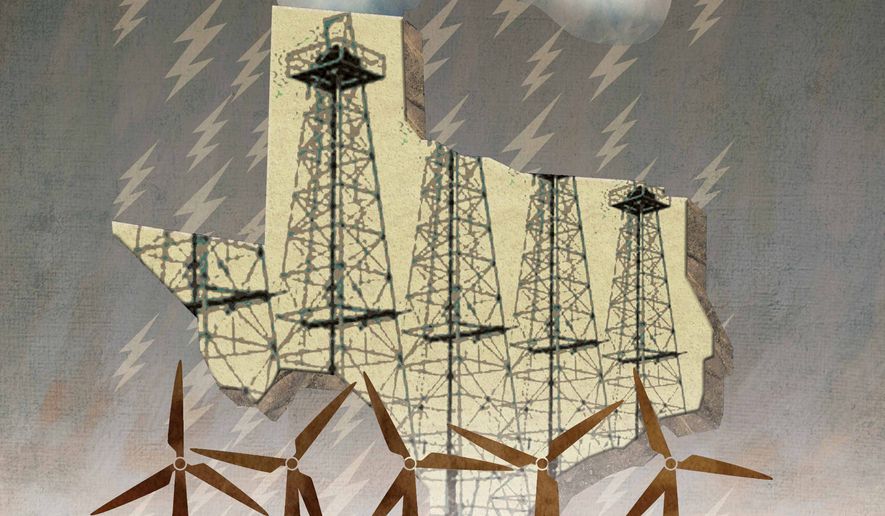OPINION:
As former energy secretaries in a Republican and Democratic administration, we can say with complete confidence that President-elect Donald Trump has made an excellent choice in nominating Rick Perry to be secretary of energy. From our perspective, Mr. Perry has precisely the background, skill set and vision needed to effectively oversee the U.S. Department of Energy (DOE) and guide the nation’s energy strategies.
As the longest-serving governor of the second-largest state in the nation, Mr. Perry has extensive experience in running a bureaucracy, and managing a budget, that is significantly larger than the DOE. He did so successfully, overseeing the nation’s job leader, which added 2.2 million jobs during his tenure — nearly 30 percent of all new jobs created in America during that time frame. Texas even added a million-and-a-half jobs since December 2007, while the rest of the country lost 400,000. Under his guidance, Texas’ gross domestic product increased by more than 50 percent while spending shrank dramatically, and Texas cut taxes 75 times for more than $17 billion in savings to taxpayers.
But it is Mr. Perry’s advocacy for an “all of the above” energy policy that makes us optimistic about his leadership at DOE. It is no surprise that a Texas governor would support the development of Texas oil and gas. And Texas remains the national leader in the production of crude oil and natural gas. But Texas is a model for the use of a free-market system, with fair regulations, to develop renewable resources. In fact, under Mr. Perry’s leadership, Texas long ago surpassed California as the nation’s leader for the development of wind power. Texas was ahead of the curve, requiring electricity providers to purchase a minimum of renewable power starting with its deregulation law in 1999. Mr. Perry signed a new law years later to raise its Renewable Portfolio Standard, requiring more power to come from green sources, and surpassed that requirement years ahead of schedule.
Texas used the renewable mandate, local tax incentives and a fair and predictable regulatory system to bring wind farms online quickly. And then, after putting so much wind on the grid that power lines in West Texas became congested, Mr. Perry and the state Public Utility Commission supported a groundbreaking transmission expansion through its Competitive Renewable Energy Zones project, ensuring not only more wind on the grid, but providing new transmission to power produced by all sources.
Because Texas is a leader in renewables and the leader in the development of natural gas from shale formations, its pollution declined significantly under Mr. Perry’s leadership. From 2000 to 2013, the state’s population increased by more than 25 percent, yet its ozone levels decreased by 24 percent. The carbon footprint declined by 17 percent. Sulfur-dioxide emissions declined by 56 percent. Nitrous-oxide emissions decreased by 66 percent. Texas also shut down 137 older, dirtier power plants, and is a major player in carbon capture sequestration and underground storage.
We also know Mr. Perry to be a strong supporter of public research, as proven by his record as governor of bringing major research projects to Texas universities in fields like biotechnology and life sciences. We expect him to continue pushing the research envelope by exploring the viability of cutting-edge energy sources such as nuclear power options, smart grid technology, fuel cell technologies, and new clean solar technologies.
Rick Perry is not a physicist. Neither were we, nor were most of those selected by presidents over the past 20 years to head up the U.S. Department of Energy. But Mr. Perry is an innovator and a forward-thinking leader whose proactive strategies helped position Texas for the economy of the future. He has proven his business acumen, and he stands ready to put that same foresight, perceptiveness and discernment to work for the American people. We can think of no one better equipped than Rick Perry to use sound judgment, decisive management, transformative science and technological solutions to address America’s energy challenges.
• Spencer Abraham, a former Republican member of the U.S. Senate from Michigan, was appointed by President George W. Bush to serve as secretary of energy and held that position from 2001 to 2005. Bill Richardson, a former Democratic governor of New Mexico, was appointed secretary of energy by President Bill Clinton and served in that position from 1998 to 2000.




Please read our comment policy before commenting.